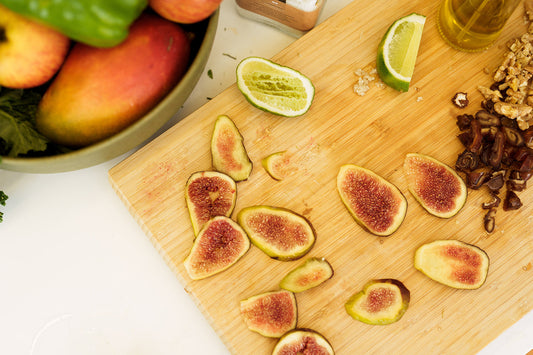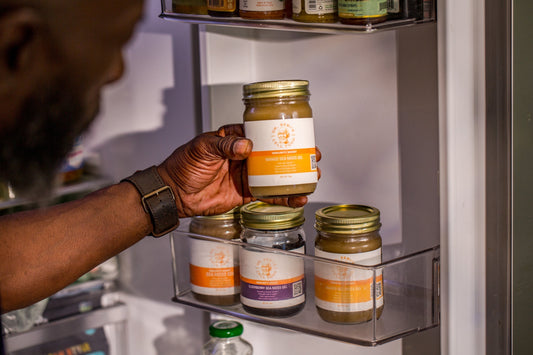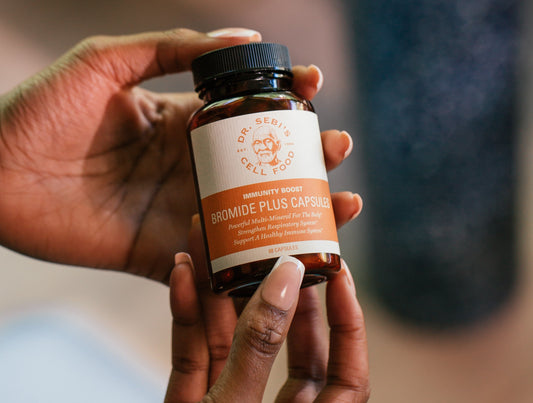Even though your brain is only 2% of your body weight, it uses 20% of your energy. Your brain’s 80 billion neurons each produce 70 millivolts of bio-electrical energy. This creates 14 million volts of electrostatic potential across the neuronal membrane—four times more than the electrical force-producing lightning during a storm.
The brain is unarguably critical for our survival due to its influence over so many essential bodily processes. These processes include breathing, sensing, digestion, memory, thinking, and feeling. Even when we sleep the brain is active, co-ordinating trillions of cells and biological processes. Neurons continuously transmit and process information using electrical signals, generated by a flow of potassium and sodium ions.
Shortages in bio-electricity impact these power-hungry 'executive' brain functions, making it hard to think clearly and driving primal fear-based reactions, and instant gratification. When the brain is unable to function effectively all other aspects of our mental and physical health suffer. This is why it's so important to take care of your brain health.
Symptoms of Poor Brain Health
The brain has two types of tissue: white matter and gray matter. Grey matter needs more energy and forms our human thinking brain (neo-cortex). The evolution of gray matter helped us think faster, but it was at the expense of energy storage.
So, we either maintain a steady flow of nutrients to meet energy demands, or the brain is forced to prioritize needs. That can lead to problems with the following:
- Focus: attention requires energy, to suppress distracting thoughts and external stimuli
- Cognition: energetic shortfalls create mental blocks, anxiety, confusion, and indecisiveness
- Mood: feeling motivation, desire or joy needs neurotransmitters, which require energy
- Memory: remembering is a high-energy task; age-related memory decline is energetic
- Lethargy: the body reduces unnecessary tasks, including your ability to stay awake
- Immune: inflammation and energetic-stress reduce regenerative functions
- Weight: desperate for energy; appetite increases to shore-up the energetic gap
What Is Neurodegeneration?
We’re accustomed to the idea of the brain declining being normal. But it's our increasing exposure to toxins, and other inflammatory substances, that damage cells (reducing oxygen supply and energy availability), that causes decline, not the process of aging itself.
The word neurodegeneration consists of two parts:
- “Neuro,” referring to the neurons in the brain (nerve cells that transmit electrical signals as they communicate with each other, and the body)
- “Degeneration,” the state or process of being in decline
Exposure to toxins and pollutants in our environment has increased neurodegenerative diseases. Air pollution, for example, is associated with Parkinson's disease, while heavy metal exposure increases the risks of Alzheimer's disease. Additionally, stress and social isolation have been linked to an increased risk of cognitive decline.
How to Keep Your Brain Young
Aging is natural, and some physical and cognitive decline can come with that. However, your lifestyle can counterbalance that quite a bit. So, just like you work out to build stronger muscles, you also want to exercise your brain to maintain its proper functionality.
This is known as brain fitness, and it has two basic principles: variety and curiosity.
Think about how you learned a new skill and how it eventually became second nature to you. Some people will keep doing it the same way and not make any changes, but others will see it as a challenge to do it differently next time. The latter is an excellent workout for your brain!
When your brain health is optimal, you’ll benefit from good cognitive functioning, which is necessary for problem-solving, communicating, and making decisions. So, we will share seven ideas to help you attain your quest for mental fitness and, thus, keep your brain young.
Brain-Boosting Activities
Aerobic Exercise
Exercises like jump rope, swimming, running, jogging, walking, and using a stationary bike are all great ways to level up your brain power, and feel good about yourself. Aerobic exercise encourages blood flow in the brain, increasing the oxygen and nutrients that feed neural cells.
Aerobic exercises are also known to release feel-good neurotransmitters like endorphins that calm anxiety and stress and promote general well-being. We evolved to move and remaining stationary causes physical and mental stagnation that reduces the removal of waste substances.
Meditation
Many people meditate to benefit from psychological well-being, especially when dealing with mental health issues like anxiety and depression. However, meditation does more than just help you relax; it also gives your brain a good workout.
Meditating puts you in a different mental state, which engages your brain in new and fascinating ways. Meditation may actually thicken the prefrontal cortex, improving your decision-making skills, raising your awareness, and helping with concentration. It also encourages the brain to become more adaptable with the power of increased neuroplasticity (the ability of the brain’s neurons to grow, change and reorganize themselves).
The simplest way to start meditating is by becoming more aware of your breath. This helps you to become more present in the moment. When your attention wanders off, simply bring it back to your breath. Breathing more also increases oxygen which is a vital brain fuel.
Reading
Reading is excellent for your brain and has many benefits: enhanced concentration, memory, neural connectivity, comprehension skills, emotional intelligence, and even empathy. Studies have shown that reading protects the brain from dementia in older people.
You can access books for free at your local library and also look into getting portable books to explore interesting characters, information, and facts. While you might like one particular book genre, it’s good to branch out sometimes. Not only will reading something different give your brain a good workout, but it’ll also help you tell interesting stories to others about what you’re reading.
Learn a New Language
The brain has to work quite hard to learn a new language, which is a great mental exercise. Learning new languages is associated with improved memory and thinking skills. Did you know that bilingual people (folks that can speak two languages) have increased protection from dementia in older age, as well as increased ability to pay attention, make decisions, and even multitask? ¡Es verdad!
Learn a Musical Instrument
Similar to acquiring a new language, the brain has to work hard to grasp the skills needed to play a new musical instrument. Combining the logic of timing and physical skills with the creativity of expressing yourself through sound, learning an instrument is a whole-brain experience that stimulates lots of new neuronal growth.
When scientists have studied the brains of musicians, they’ve found that they have extra strong brain regions associated with the ability to think about multiple concepts at the same time, and increased coordination of muscles, bones, and nerves. Playing music is also a powerful stress buster, further lightening the load on your beautiful brain.
Brain-Boosting Games
Sudoku
One of the most popular puzzle games of recorded human history, Sudoku (Japanese for “number place” is a number puzzle where you have to find the right numbers to fit into a grid. A recent study showed that people over the age of 50 who practice puzzles like Sudoku have improved brain function.
Crosswords
The classic game of writing words that are the answers to questions in a grid of black and white squares. Crosswords are a favorite among word enthusiasts, who can expect to reap the benefits of playing them on a regular basis: improved memory and brain function.
Jigsaw Puzzles
Piecing together a jigsaw requires spatial reasoning skills (understanding how objects move in three dimensions), memory, and perception skills that are all enhanced through practice.
Mancala
Also known as Congklak (and many other names), Mancala is a fan favorite. To succeed at Mancala you must have good counting skills and be able to plan and think strategically. If you’re not great with these skills, Mancala can help you improve them quickly.
Eat for Brain Health
Many people eat healthy foods for their waistline or to prevent chronic diseases like diabetes or heart disease. But did you know that you should also eat nutritious meals for your brain?
Our brains need healthy fats in order to function efficiently. After all, 70% of your brain is made up of fat! So, be sure to include walnuts, Brazil nuts, and raw olive oil in your diet to ensure you get the healthy fats you need. Make a conscious effort to eliminate trans fats from your diet, as those aren’t good for your brain or body.
Sleep Well for Brain Health
Getting enough good quality sleep is absolutely vital for looking after your brain. Are you getting the right amount of zzz’s? If not, intend to establish a new sleeping pattern that affords you between 7 and 9 hours of sleep every night.
When the sun sets, find new ways of spending your time beyond screens and their sleep-disturbing blue light. Perhaps you’d like to read, learn a new language, or study a musical instrument (all of which, as we’ve seen, are powerful exercises for protecting your brain!).
As you sleep, your brain performs a “rinse and repair” cycle. Accumulated waste and toxins that have gathered during the day are literally washed away (by the glymphatic system). Meanwhile, stores of nutrients and fuel are restocked for the next day.
Skimping on just a single night's sleep impairs the brain much like alcohol (measured in road safety tests). If you don’t prioritize sleep your brain will quickly suffer. Imagine what would happen if you never cleaned your kitchen, or filled the cupboards and fridge? Your brain needs time to restore and it only does it while you rest.
Stay Social for Brain Health
We are social creatures and social connections stimulate our brains. Studies have shown that people who have good social connections (classed as those who live with other people, have regular weekly meetings with friends or family or like-minded people, and don’t experience loneliness) have slower cognitive decline than those with poor social connections.
This is why it’s important to carve out time for activities, dinners, phone calls, or video calls with your nearest and dearest. If you don’t have many good people close by, consider joining a social club, meetup group, or volunteering organization to keep your brain active and engaged.
Bad Habits Sabotaging Your Brain Health
Having Too Much Alone Time
Having moments to yourself can be very beneficial, but too much alone time can have negative consequences. Humans are meant to socialize with others and develop real, genuine connections.
Individuals with just a few close friends tend to be happier and more productive and are less likely to suffer from Alzheimer’s disease and brain decline. Next time you feel alone, make an effort to call up some friends or meet some new ones.
Eating Tons of Junk Food
Individuals who often consume lots of highly processed foods are found to have smaller brain parts, especially in areas linked to memory, learning, and mental health. As a result, it’s better to eat foods that can maintain brain function and slow mental decline. Opt for a handful of walnuts instead of a bag of chips or other junk food.
But watch your portion size: Too much of even a good thing could still be bad. Constantly overeating is associated with mental decline in older adults. When you overeat good or bad food, your brain will have a more challenging time trying to build the strong network of connections needed for you to think and remember.
Watching a Lot of TV
The average person is said to watch more than four hours of television each day. But in one study, people watching a lot of television daily in their 40s, 50s, and 60s experienced more significant cognitive declines than those who watched very little TV.
Watching too much TV also interferes with the time you’d spend building relationships, enjoying life, and exercising your mind and body. As a result, watching as little TV as possible is best, as watching too much may reduce your brain volume.
Blasting Your Headphones
Listening to music with headphones at full volume can permanently damage your hearing in just 30 minutes. And that hearing loss is linked to cognitive problems like Alzheimer’s disease and brain tissue loss. Researchers believe this happens because the brain has to begin working harder to process what’s being said around you. Keep the volume at no louder than 60% of your device’s max.
Not Moving Enough
The effects of a sedentary lifestyle are quite detrimental to the body but also bad for the brain. You likely recognize that not exercising regularly increases your risk of developing heart disease, high blood pressure, and diabetes, but it also ups your risk of Alzheimer’s disease.
While you don’t need to run marathons to work out your brain, you should aim to walk around your neighborhood or do another physical activity at least three days a week.
Smoking
Most individuals recognize that smoking is bad for their heart and lungs. However, it harms the health of the brain as well. When researchers compared smokers to nonsmokers, they found that smokers had more brain volume loss in several areas.
In addition, it worsens your memory and makes you twice as likely to develop dementia and Alzheimer’s disease. Smoking may also speed up brain aging and could thin the cerebral cortex, which is necessary for thinking, learning, and reasoning.
Boost Your Brain Naturally
Dr. Sebi formulated two incredible compounds to support your supply of mental energy, reduce neural-inflammation, provide brain-boosting minerals, undo the damage of oxidation, and keep your brain in tip-top condition!
Dr. Sebi’s Banju contains blue vervain, burdock root, and bugleweed, supporting detoxification to clear away substances driving inflammation. It provides minerals and antioxidants essential for regulating electrical transmission and contains flavonoids that boost energy production and help oxygenate the brain.
Dr. Sebi’s Viento enhances oxygenation with iron and powerful antioxidants while removing the heavy metals that impair immune functions. Viento boosts brain circulation to ensure minerals and nutrients get to where they are needed most, helping you focus and concentrate more easily while repairing the damage done by inflammation and stress.



















































3 comments
Hi
Greetings in our lord and Savior
Can you kindly advise what should I take for vitiligo please .
May God bless you
With kind regards
Pam Jabbar
Which product is best for the brain for people like me that suffer from headache
Do u guys have coffee for the brain or something for balance.